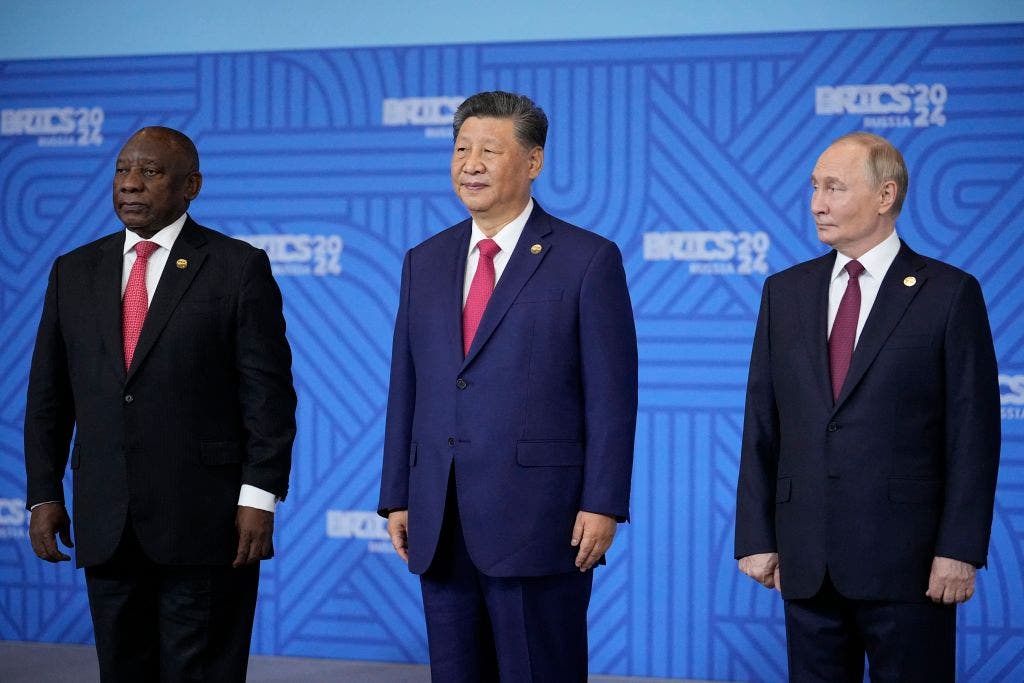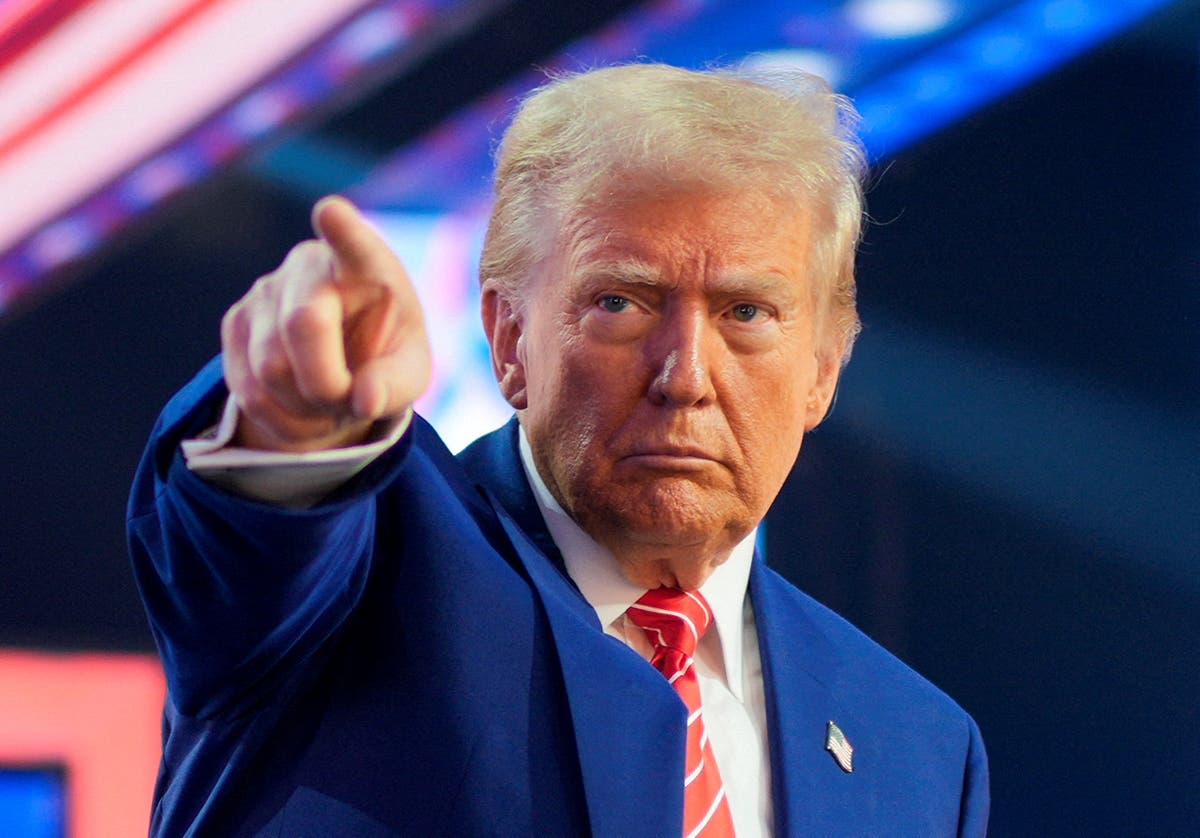World
Biden’s task at final UN speech: safeguard legacy, set stage for Harris
NEW YORK – President Joe Biden will seek to fortify his legacy on the global stage and safeguard his vision for robust U.S. involvement in the world when he addresses the U.N. General Assembly on Tuesday for the last time before he leaves office.
With wars in Ukraine and Gaza unresolved and his predecessor, former President Donald Trump, running neck-and-neck with his hand-picked successor, Vice President Kamala Harris, the address will be Biden’s last chance to articulate a compelling case for his worldview before the November election.
Biden, 81, arrives at the annual gathering of world leaders in New York as a lame duck president, having quit the race days after a NATO summit at which he failed to demonstrate he could save his candidacy.
Now, the president will have a chance at redemption as he argues that the Biden-Harris administration’s focus on reinvigorating U.S. alliances has made the country safer and deserves to be rewarded with four more years of Democratic leadership.
More: What’s behind Russia’s sluggish response to Ukrainian raid?
“That speech can set the foundation for what this country has to do in order to protect our national security, and the principles and values that a president has to have,” former Secretary of Defense Leon Panetta said in an interview.
“He basically will be setting the agenda for the presidency of Kamala Harris,” Panetta told USA TODAY.
Biden’s argument runs counter to the one that Trump has been making. The ex-Republican president insists that conflicts would not have broken out in the Middle East and Ukraine if voters had not given him the boot. He has pledged to prevent new foreign entanglements should voters give him a redo.
Biden allies have pushed back forcefully on those claims. Former under secretary of state for political affairs Victoria Nuland said in an interview that Trump “did nothing” to rein in Russian President Vladimir Putin when he was in office.
More: Israeli airstrikes on Hezbollah in Lebanon escalate in biggest attack since Oct. 7
“All the seeds for the current conflicts were laid during the Trump administration, and Trump bears direct responsibility for things that did not happen on his watch but encouraged both Putin and Hamas,” she said.
Harris’ views are similar to Biden’s. She has argued as vice president that threats to national security and financial prosperity will only grow if America isolates itself from its allies.
The vice president will not be in New York for the diplomatic confab. She is leaving the moment entirely to Biden.
“I’m sure the speech will be a legacy speech to try and defend his record overall,” said John Bolton, who was U.N. ambassador to George W. Bush. “It’ll be a recitation of what he thinks his accomplishments are. Whether that will help Harris or not. I don’t know.”
Bolton, a former Trump national security adviser, who is not for either major party candidate this year, questioned whether Americans will be paying attention.
Middle East threatens to erupt during UN meeting
As the president prepared to address the U.N. General Assembly, an agreement to end the Israel-Hamas war and secure the release of the remaining hostages, including seven Americans, was nowhere in sight.
Instead, his administration found itself working to contain a fast-escalating conflict between Israel and Hezbollah militants in neighboring Lebanon.
More than 270 people were killed in Israeli airstrikes across Lebanon on Monday, according to the country’s health ministry. Israel said the assault was necessary to prevent a suspected attack by Hezbollah, which has been firing across the border since Hamas’ surprise incursion into southern Israel last Oct. 7. An airstrike on Friday killed Hezbollah commanders, the Israeli government said.
The White House has said it was not aware of Israel’s plans to strike Beirut. It has also denied U.S. involvement in the Israeli-linked explosions of electronic devices in Lebanon last week that killed dozens and injured 3,000 people.
Biden had not spoken to Israeli Prime Minister Benjamin Netanyahu about the attacks as of Monday and had no plans to meet with the difficult ally while he is in the U.S.
More: US to send more troops to Middle East after Israeli targets Hezbollah in major Lebanon strike
Biden has at times criticized Netanyahu, who is scheduled to address the U.N. on Friday. The president’s national security communications adviser, John Kirby, said last week that Hamas is “the main obstacle” to achieving a deal to end the 11-month-old war.
“We’re not looking a lot in the rearview mirror here. We’re really looking ahead and trying to find a way forward that has proven difficult,” Kirby said. “But it doesn’t diminish the energy that we’re applying to the problem set.”
Biden spent the weekend at his Wilmington, Del., residence meeting with a partnership he’s had success in shaping. He held closed-door meetings with the leaders of Australia, India, and Japan, a grouping known as the Quad.
National security adviser Jake Sullivan pointed to the deepening Indo-Pacific partnership as “one of the things that he’s going to be very proud of when he leaves office.”
China objects to the partnership, which serves as a counterweight to Beijing’s efforts to dominate the Pacific region.
In New York, the president plans to speak at a climate summit on Tuesday and hold bilateral talks with the president of Vietnam on Wednesday. He heads back to Washington after to host Ukrainian President Volodymyr Zelenskyy at the White House on Thursday. Biden met with Sheikh Mohamed bin Zayed Al Nahyan, the president of the United Arab Emirates, in Washington on Monday.
Harris met separately with bin Zayed, known as MBZ, and will hold a solo meeting with Zelenskyy. She has said she will continue to arm Ukraine if she’s elected. Her campaign has meanwhile emphasized Trump’s refusal to say whether he wants the U.S. ally to win the war.
Biden’s mobilization of NATO nations to defend Ukraine is among the most important U.S. foreign policy decisions of this century, said Panetta, a former CIA chief who is now co-host of the One Decision podcast.
“I really think that that theme needs to be stressed over and over again, because my belief is, if the United States doesn’t provide that leadership, nobody else will,” he said.










